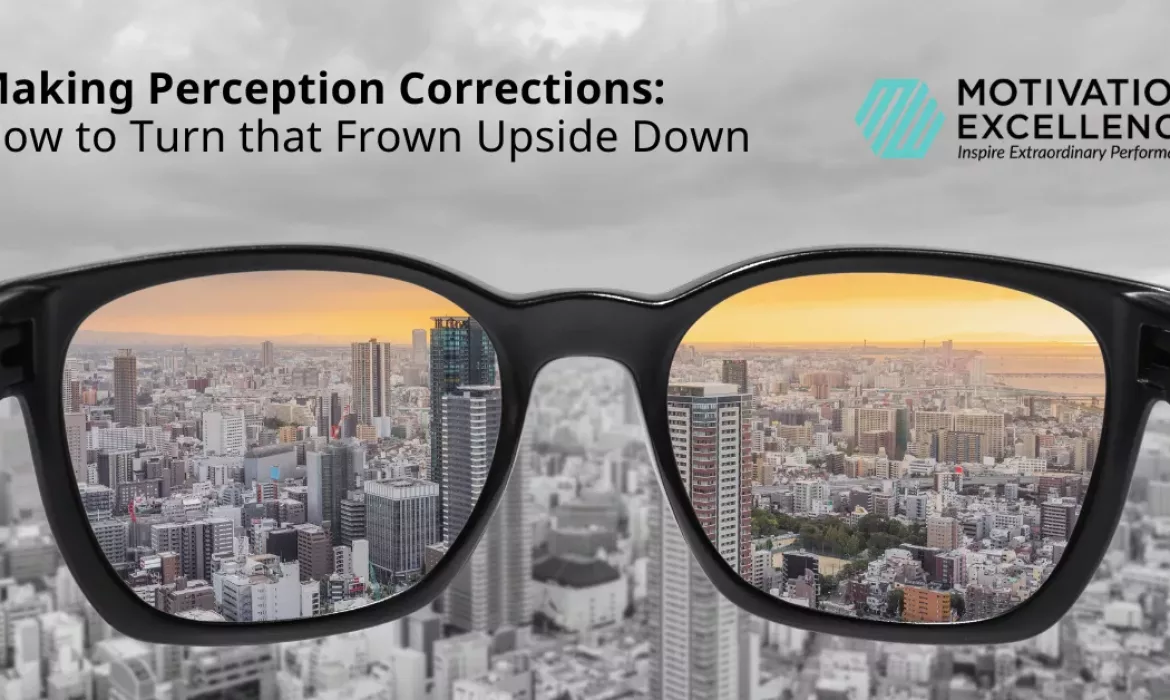
Perception is more than a visual sense. Is the Uno card showing a 6 or a 9? You know that where you’re sitting in relation to the card might change what you see. And while visual perception is important (there’s credence to the saying, “Dress for the job you want”), how your gut instinctively feels about your environment and the people around you says a lot about your mindset. How people feel about you can limit your opportunities or push you to a whole new level. This blog is about changing perceptions when needed—yours and theirs.
Change Your Own Perceptions
You wake up and stub your toe on the bedside table. Do you immediately think, “Oh, it’s going to be THAT kind of day?” Now, you’re just looking for bad things to come your way, and you feel vindicated as they do. “Well, I knew when I woke up this day was going to suck.”
If you stub your toe and think, “Shoot, that hurts, but I’m not going to let it dictate the rest of my day,” you haven’t committed yourself to looking for more negatives. Going a step further, actively looking for the good things will help you find the good things. When you actively challenge your perception of a situation or person, you’re giving yourself the chance to change it too. Medium.com gives some other tips to help you turn the tables on your inner feelings:
- Count your blessings
- Be purposefully aware of how you internally react to your environment
- Learn from the past and move on
When you look in the mirror, do you study your flaws or smile at your attributes? For the next week, make a conscious effort to start each day by naming at least one nice thing about yourself: physical, mental or otherwise. Try thinking, “I have a nice nose,” or “I’m a great listener,” or “I am good at including people.” You might be surprised to find you have more good days than bad AND other people will notice and see you in a more positive light too!
Change People’s Perception of You
If you’re self-aware, you likely have a pretty good idea of what people think of you. Sometimes, it’s a positive assessment, which is obviously great; no change needed. But, what if you sense the opposite—or someone flat out tells you—they think you’re bossy or you don’t contribute ideas to a brainstorming session. These perceptions could cost you a friend or a job. If you believe they’re misperceptions, a change of direction is warranted ASAP.
VantageLeadership.com suggests communicating your intentions is imperative. Perhaps you noticed no one stepped up to take the lead on marketing materials for a new product, so to get everyone started, you delegated tasks out like a blackjack dealer. You meant to start momentum, not boss people around. For our second example above, maybe your ideas are continually shot down so you became afraid to speak up. You intended to be an active listener instead, but it wasn’t seen that way.
Garflinkle Executive Coaching offers other ideas to get people to see you differently:
- Be aware of how your behavior affects others
- Ask for feedback
- Be your own cheerleader
- Be open to changing tactics
It’s been said that perception is reality. If you think of yourself as confident, successful and relevant, others are more likely to see you that way too. If people see you as stuck-up or a constant downer, you’ll have a hard time making friends. If you know how people perceive you and don’t like it, you can take steps to change your behavior. It’s not an overnight journey, but each time you challenge someone’s perception of you with a positive change, it helps them build a new image.
Find Your Balance
On the flip side of this discussion, we could ask, “Should I really care what someone thinks about me?” No one should base their daily existence on being seen in the best light by everyone at all times. There are going to be people you can’t sway to like you no matter what. The trick is to find a natural balance between making positive changes that help you achieve your goals and knowing who you are at your core and being okay with not everybody liking you.
With all that said, developing a positive outlook (but not toxically positive—it’s a thing!) is a great goal for all of us. It certainly helps boost our mood and smooth over some of life’s inevitable bumps and holes. If you can believe it, you can perceive it (or maybe the other way around?).
Good luck!


